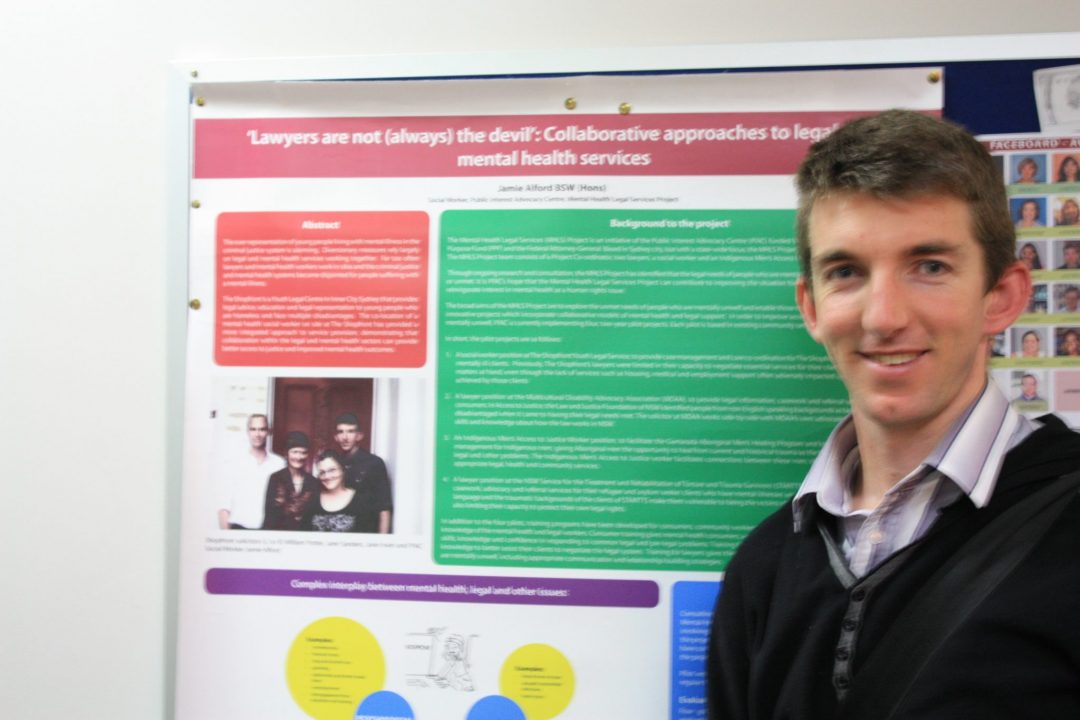
My experience at the
Shopfront Youth Legal Centre over the past 14 months has convinced me of the importance
of early intervention. This is because early intervention and diversion into
treatment and support prevents young people who are suffering from mental
illness becoming entrenched in the criminal justice system.
In this issue of the
Mental Health e-news I will make some comments about diversion and section 32
of the Mental Health (Forensic Provisions)
Act 1990 (NSW). I will also provide a brief report on the International
Youth Mental Health Conference.
Diversion
Diverting young people from the criminal justice system into treatment and
support services has considerable benefits for the individuals involved, their
families and the broader community.
Incarceration is
expensive and rates of recidivism suggest that it does little to prevent
further offending. Surveys by Justice Health in NSW indicate extremely high
levels of mental illness in both our juvenile and adult correctional
facilities.
Section 32 of the Mental Health (Forensic Provisions) Act
is an important avenue for diversion. It allows people with a mental illness or
a mental condition who are capable of being treated in the community or who
have a developmental disability to be directed into treatment and support
instead of possible imprisonment.
Mental health workers
have an important role to play in providing background information to the court
to help it decide whether it is appropriate for a person to be diverted from
the criminal justice system under section 32.
In order for a
magistrate to deal with a person alleged to have committed an offence under
section 32, the magistrate must be satisfied that the person has a mental
illness or a mental condition capable of being treated in the community or has a
developmental disability.
When hearing a case, Magistrates
usually expect to be provided with a treatment plan for the accused. This
allows an order to be made that the accused comply with the treatment plan for
six months.
Lawyers and magistrates
often rely on mental health workers’ knowledge of the accused to provide
reports or letters of support to the court. Relevant information provided by the
mental health worker to the court is not just limited to diagnosis of mental illness
but other psychosocial factors such as a history of homelessness, abuse and the
effect that mental illness has on the life of the accused.
The treatment plan that
is put to the court should be clear, detailed and realistic. The mental
health worker’s opinion on what treatment and support is available and appropriate
is invaluable to the magistrate; it also helps to avoid a situation where the
accused is set up to fail because of an unrealistic treatment plan. The mental
health worker also must ensure their client understands the treatment plan and
is included in the process of deciding what activities should be part of it.
Client’s have a right
to have their case considered under Section 32 and a mental health worker
should not be seen as ‘getting the client off’ by providing a letter or report
to the court. It is important for the mental health worker to know that it is
the magistrate’s role to decide whether a section 32 order is appropriate.
There are a number of
challenges faced by mental health workers regarding Section 32 orders. No specific
funding is available for this work and the system relies on existing and
overstretched health and community services. If the client does not comply
with the treatment plan, the mental health worker must decide if they will
report this. Doing so may result in the client being re-sentenced on the
matter.
Training
Jamie Alford is developing
training for Community Mental Health staff who assist young people with mental
health and legal issues. Contact Jamie to find
out more.
International Youth Mental Health Conference
The inaugural International Youth Mental
Health Conference was held in Melbourne in on 29 and 30 July 2010, attended
by over 1000 people.
Professor Patrick
McGorry acted as the conference convenor; workshops included topics on early
intervention, program innovations, forensic issues, suicide prevention,
substance abuse and clinical complexity. The barriers young people experience seeking
help from professional services was a recurrent theme.
A poster for the Shopfront
pilot program was presented to conference participants. The poster’s title, Lawyers are not (always) the devil:
Collaborative approaches to Legal and Mental Health Service, provided an
opportunity to outline the benefits of collaborative legal and mental health
service intervention.
Pictured: Jamie Alford with Shopfront poster.
Other stories in this edition of Mental Health e-news, #2:
- Welcome
- Gamarada information night open to the public
- Valuing People with Disability in Australia’s Migration Program
- Persistence solves Centrelink dilemma
- Evaluating the Mental Health Legal Services Project